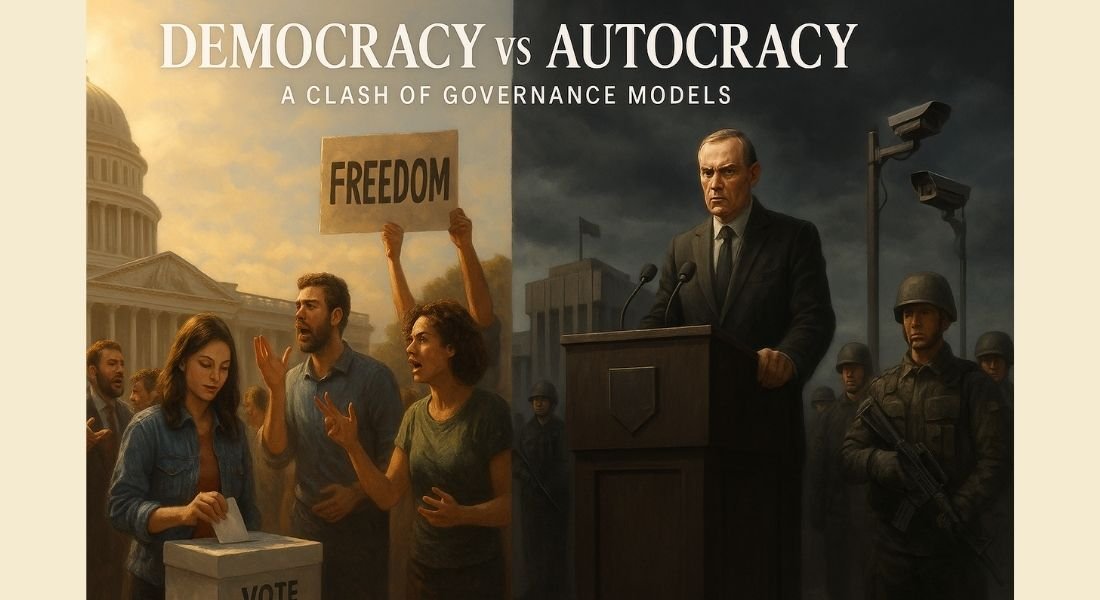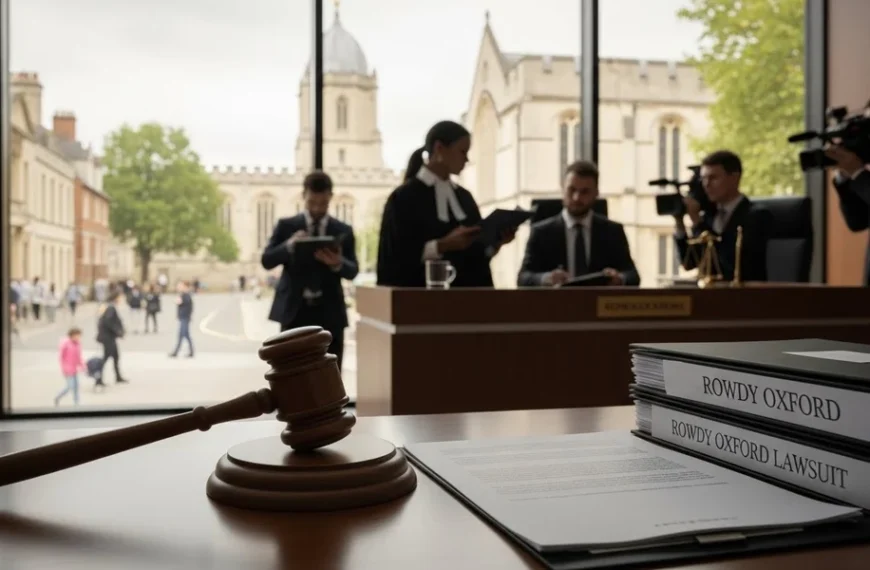In the ever evolving landscape of global politics, democracy and autocracy represent two fundamentally different forms of governance. Each has its own principles, strengths and weaknesses and both have shaped the histories of nations in profound ways.
Understanding the differences between these systems is crucial not only for political analysts but also for citizens who wish to be informed participants in their own governments.
What is Democracy?
Democracy, derived from the Greek word dēmokratía meaning “rule by the people,” is a system of government in which power is vested in the hands of the population, either directly or through elected representatives. The core principles of democracy include:
- Free and fair elections
- Majority rule with respect for minority rights
- Rule of law
- Accountability and transparency
- Freedom of speech, press and association
In a democratic society, leaders are chosen through regular, competitive elections. Political power is decentralized and checks and balances are built into the system to prevent abuses.
Modern democracies vary in form parliamentary, presidential or hybrid but all seek to ensure citizen participation, protect individual liberties and maintain government accountability.
What is Autocracy?
Autocracy, on the other hand, comes from the Greek autokratēs, meaning “self ruler.” It is a system of governance in which one individual or a small group holds absolute power. This can take various forms:
- Dictatorships (e.g., North Korea)
- Absolute monarchies (e.g., Saudi Arabia)
- One party states (e.g., China)
Autocrats often rise to power through non democratic means and typically maintain control through coercion, censorship, propaganda and sometimes violence. Elections, if held, are usually neither free nor fair.
In an autocracy, power is centralized. Decision making is rapid, as there is little to no consultation with the public or opposition forces. However, this concentration of power can lead to serious abuses and a lack of accountability.
Advantages of Democracy
- Citizen Participation: Democracies encourage civic engagement. Citizens have the right to vote, protest, organize and express their views freely.
- Accountability: Democratic leaders can be voted out of office, which incentivizes them to act in the public interest.
- Protection of Rights: Democratic systems are built on constitutions or laws that protect individual freedoms.
- Innovation and Diversity: A free society fosters debate, creativity and innovation. Diverse voices are not only tolerated but encouraged.
- Peaceful Transition of Power: Democracies generally allow for regular and peaceful transitions of power, avoiding violent upheavals.
Advantages of Autocracy
- Efficiency in Decision Making: Autocratic regimes can implement decisions quickly, as there are fewer bureaucratic hurdles or opposition.
- Stability: With one strong leader, an autocracy can provide a sense of continuity and stability particularly during times of crisis.
- Long Term Planning: Autocratic leaders, not constrained by election cycles, can implement long term policies without worrying about short term political consequences.
- Control in Emergencies: During wars, pandemics or natural disasters, swift decision making can be advantageous.
Disadvantages of Democracy
- Slow Decision Making: Because democracies involve deliberation and consensus, processes can be slow and inefficient.
- Populism and Polarization: Leaders may exploit public opinion for political gain, leading to polarization and instability.
- Voter Apathy and Misinformation: Democracies require an informed public, but misinformation and political apathy can erode their effectiveness.
- Short Term Focus: Politicians may prioritize winning elections over long term planning, leading to inconsistent policies.
Disadvantages of Autocracy
- Lack of Accountability: Without checks and balances, autocratic leaders can become corrupt or abusive.
- Suppression of Freedoms: Free speech, press and assembly are often curtailed, leading to human rights violations.
- Resistance to Change: Power concentrated in one person or party may resist necessary reforms that threaten their rule.
- Unpredictability: Autocracies often depend heavily on the personality of the leader, making governance volatile and subject to personal whims.
The Global Perspective
Historically, many societies have swung between these systems. In recent decades, there was a belief that democracy would inevitably spread globally. However, in the 21st century, there has been a noticeable rise in authoritarian tendencies even in established democracies prompting concerns about a democratic backslide.
Countries like China have showcased economic growth under authoritarian models, challenging the assumption that democracy is a prerequisite for development.
At the same time, democracies like India, Brazil and the United States have faced internal struggles related to polarization, misinformation and erosion of institutional trust.
Conclusion
Democracy and autocracy are more than just political systems—they reflect different visions of power, freedom, and human dignity. While autocracies may offer efficiency and stability, they often come at the cost of personal freedoms and long term accountability. Democracies, despite their messiness and imperfections, provide a framework for citizen empowerment and protection of rights.
Ultimately, the choice between democracy and autocracy isn’t just about governance but in fact it’s about the kind of society people want to build. And in that choice lies the future of nations.






